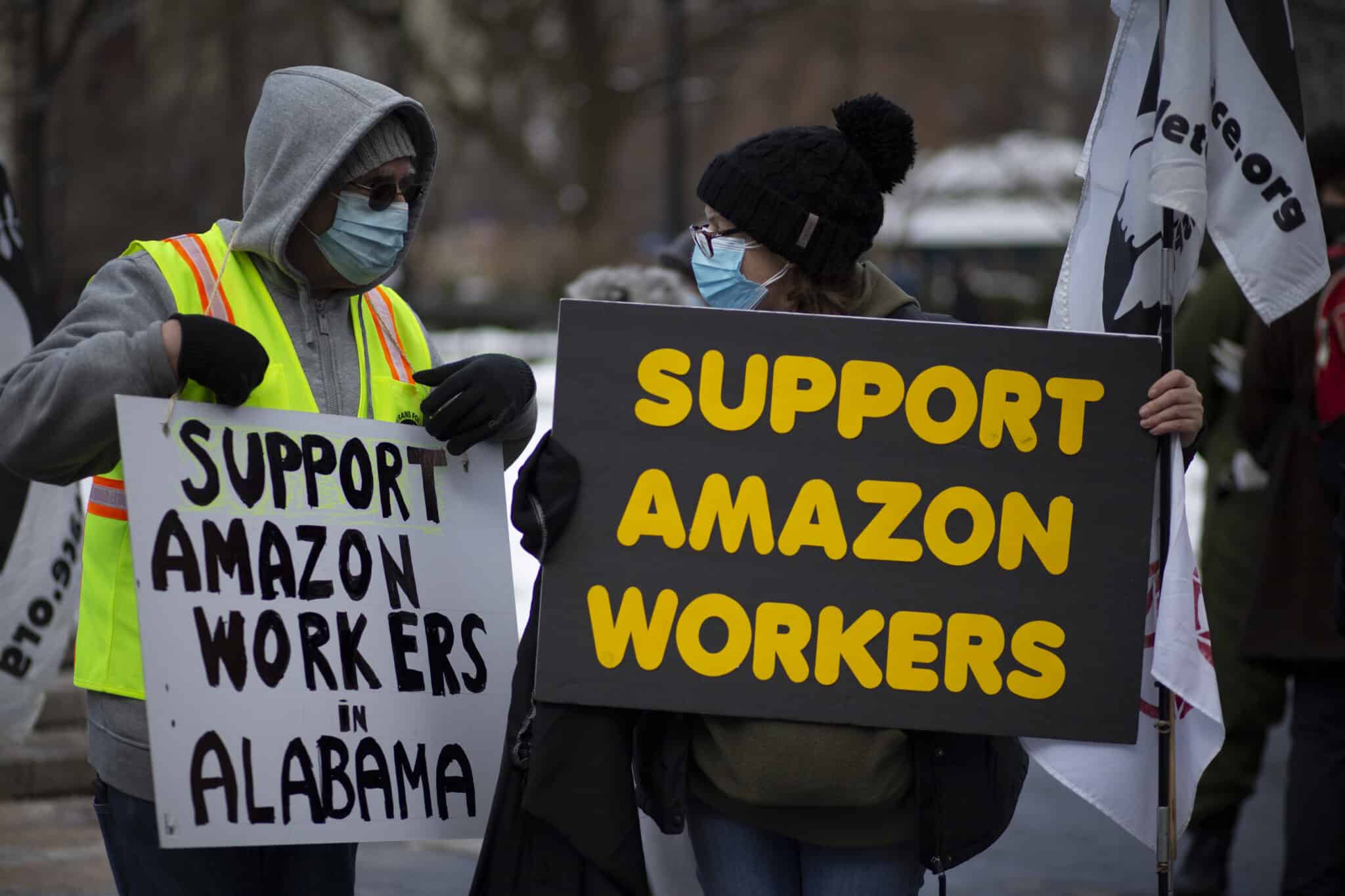
Liana Wang is a student at Harvard Law School.
In today’s news and commentary, HELP committee schedules a vote on Trump’s NLRB nominees, the 5th Circuit rejects Amazon’s request for en banc review, and TV production workers win their first union contract.
After a nomination hearing on Wednesday, the Health, Education, Labor and Pensions Committee scheduled a committee vote on President Trump’s NLRB nominees for Thursday, October 9th. If the nominees advance past the committee vote, they would be cleared for consideration by the full Senate. The Trump Administration has nominated Scott Mayer, chief labor counsel for Boeing, and James Murphy, a previous NLRB staffer, to two of the four empty seats on the NLRB. Crystal Carey, an attorney who currently represents management and employers in labor law disputes, was nominated for the NLRB General Counsel position. Since August, there has only been one member, Democrat-appointed David Prouty, on the NLRB. The HELP committee also plans to vote on two nominees for the Department of Labor.
On Thursday, the Fifth Circuit denied Amazon’s petition for rehearing en banc in Amazon.com v. NLRB, a case concerning Amazon’s obligation to negotiate with the union elected as a bargaining representative for workers at Amazon’s Staten Island warehouse in 2022. The Staten Island warehouse was Amazon’s first unionized location in America. After Amazon’s failed attempt to challenge the Staten Island representation election, Amazon filed a lawsuit challenging the constitutionality of the NLRB in a federal district court in Texas. As part of the lawsuit, Amazon sought a preliminary injunction to prevent NLRB proceedings on Amazon’s obligation to negotiate with the union. Amazon appealed that decision. When the district court did not grant the injunction before a last-minute deadline that Amazon set, Amazon appealed the “constructive denial” of injunctive relief to the Fifth Circuit. In a 2-1 decision, a panel of the Fifth Circuit ruled that Amazon was not entitled to an interlocutory appeal, as the district court did not constructively deny Amazon’s motion for injunctive relief. Notably, the decision only concerns the procedural elements of the case, leaving the bigger merits questions for another day.
Meanwhile, the Production Workers Guild (IATSE Local 111) officially ratified their first union contract with the Association of Independent Commercial Producers. The contract covers nearly 5,000 production workers in TV commercials and is the first of its kind for production workers. It expands access to healthcare, ensures workers are covered by overtime protections, financial protections, and other safety protections. The contract comes as increasing numbers of entertainment industry workers seek to unionize. The IATSE represents over 170,000 workers in the entertainment industry in the U.S. and Canada.






Daily News & Commentary
Start your day with our roundup of the latest labor developments. See all
February 6
The California Supreme Court rules on an arbitration agreement, Trump administration announces new rule on civil service protections, and states modify affirmative action requirements
February 5
Minnesota schools and teachers sue to limit ICE presence near schools; labor leaders call on Newsom to protect workers from AI; UAW and Volkswagen reach a tentative agreement.
February 4
Lawsuit challenges Trump Gold Card; insurance coverage of fertility services; moratorium on layoffs for federal workers extended
February 3
In today’s news and commentary, Bloomberg reports on a drop in unionization, Starbucks challenges an NLRB ruling, and a federal judge blocks DHS termination of protections for Haitian migrants. Volatile economic conditions and a shifting political climate drove new union membership sharply lower in 2025, according to a Bloomberg Law report analyzing trends in labor […]
February 2
Amazon announces layoffs; Trump picks BLS commissioner; DOL authorizes supplemental H-2B visas.
February 1
The moratorium blocking the Trump Administration from implementing Reductions in Force (RIFs) against federal workers expires, and workers throughout the country protest to defund ICE.